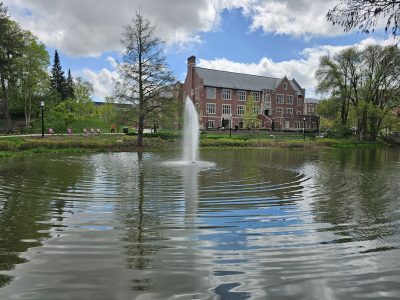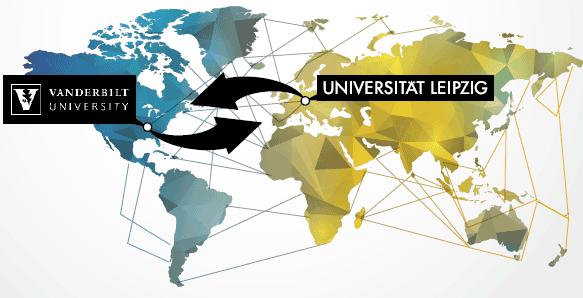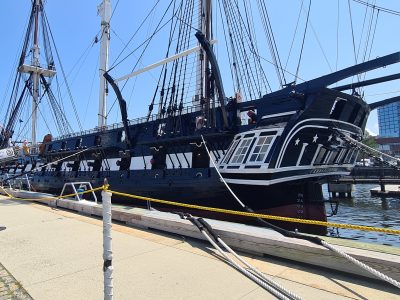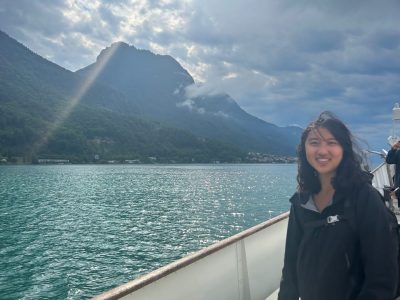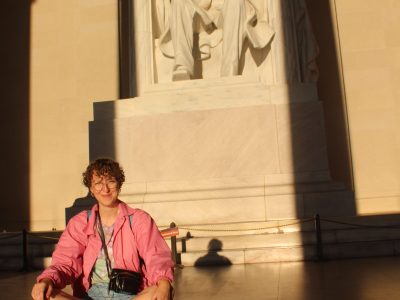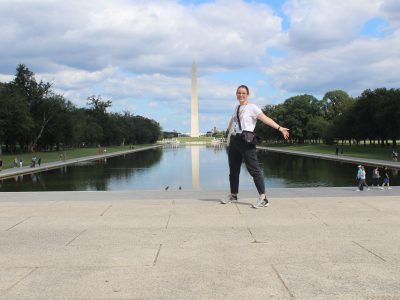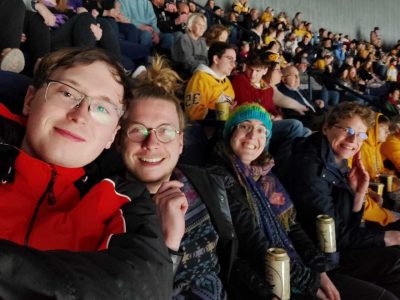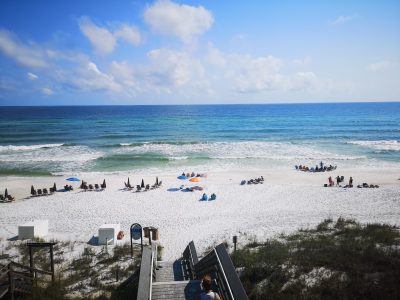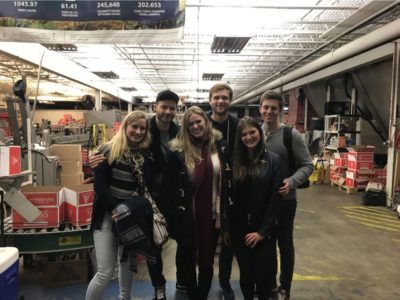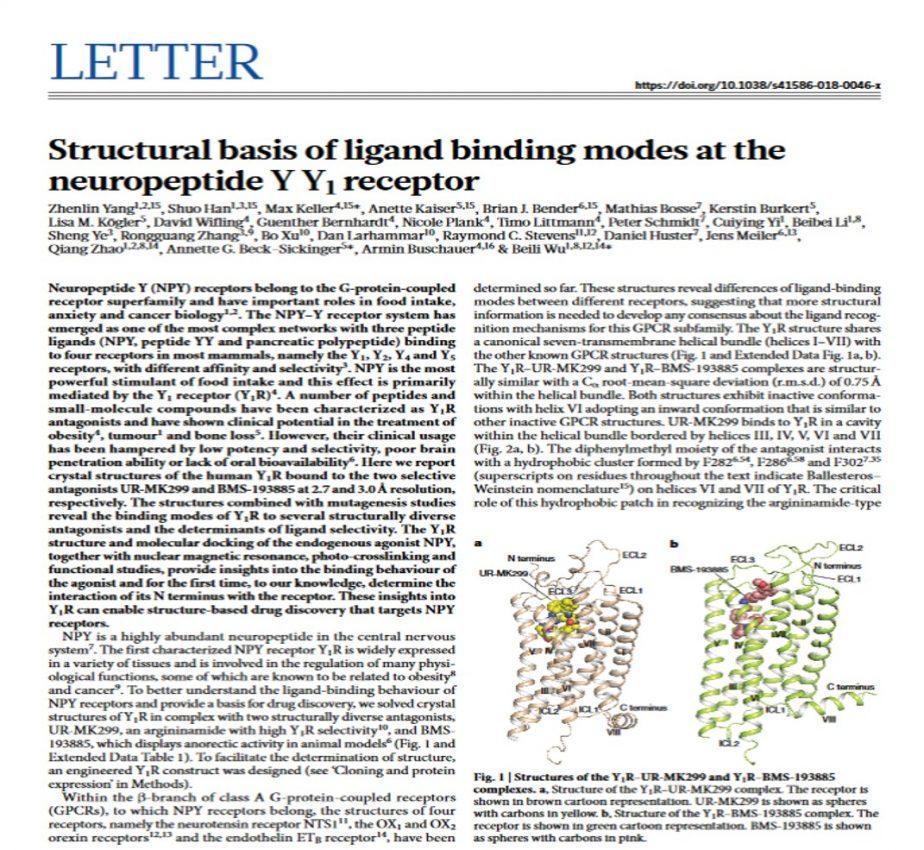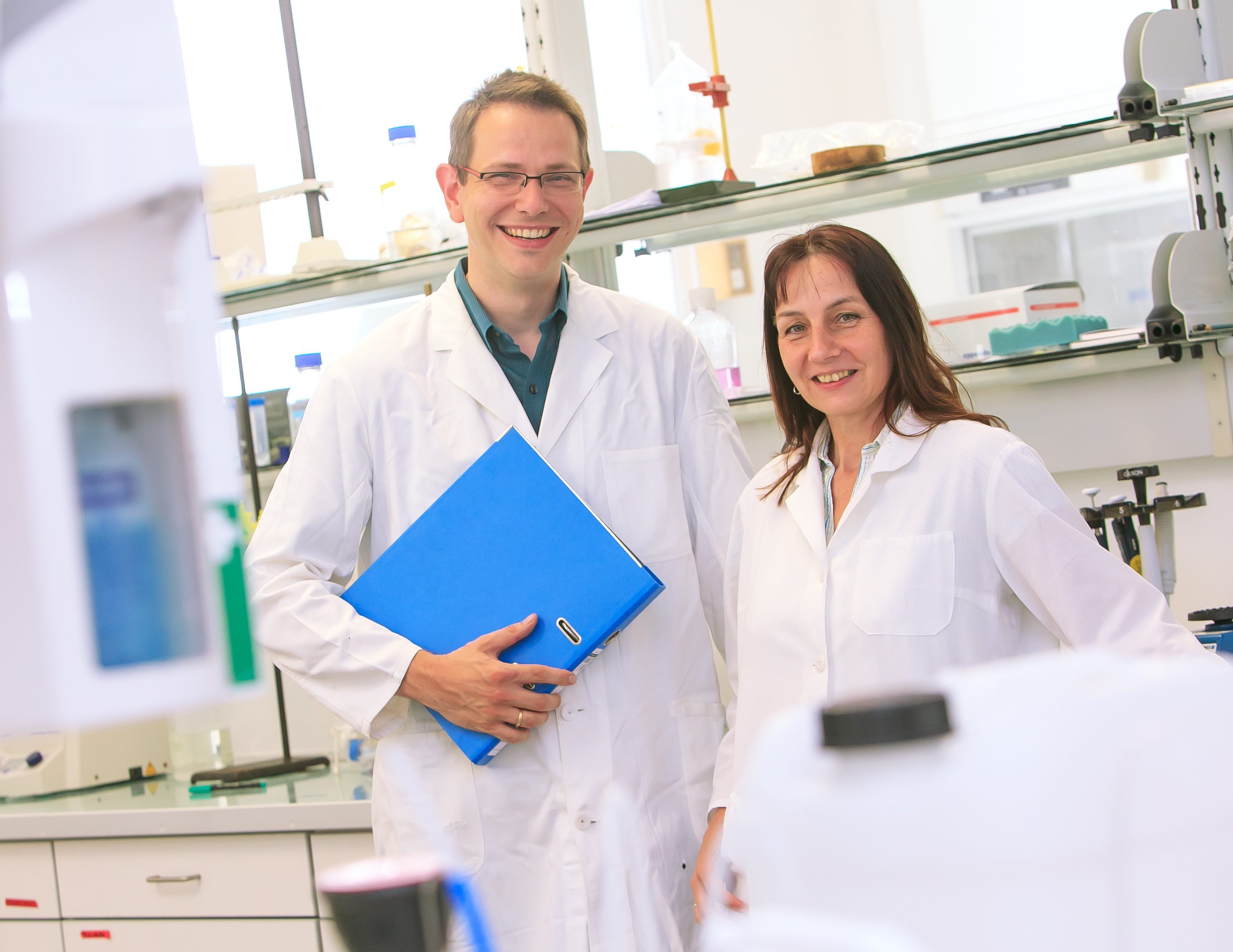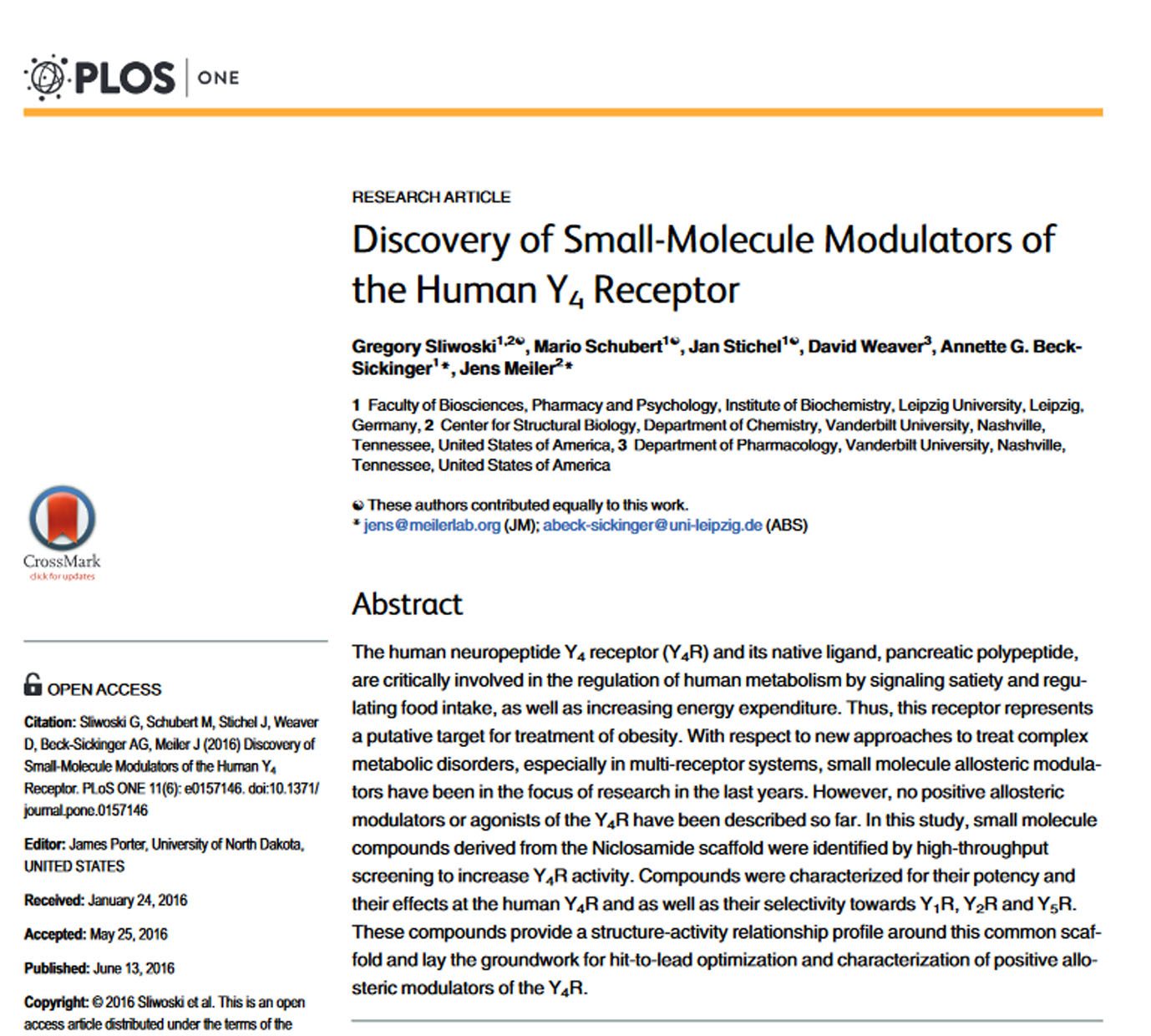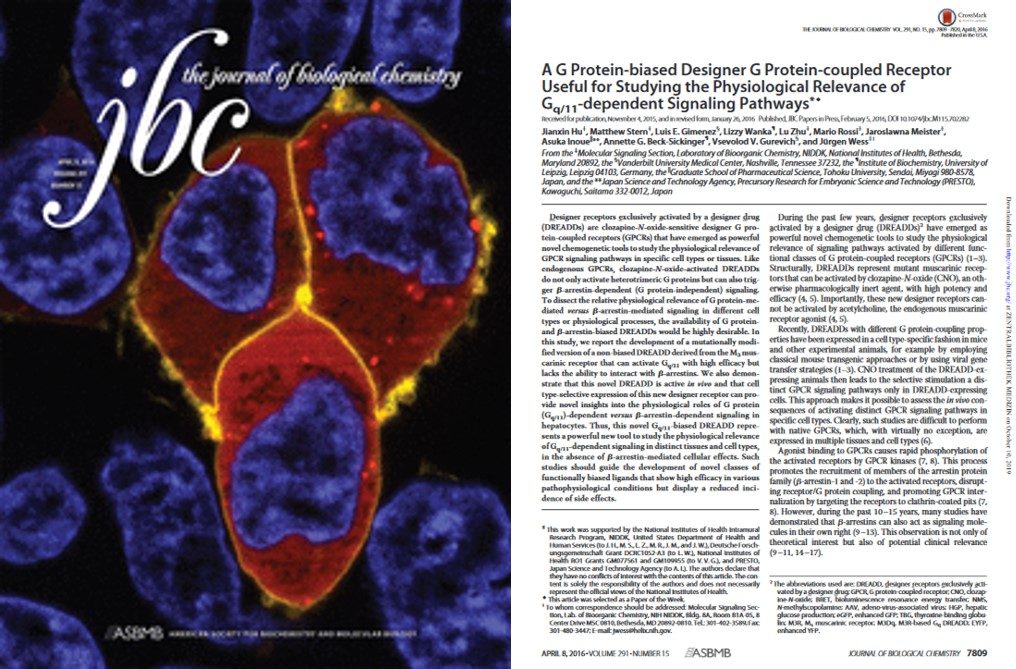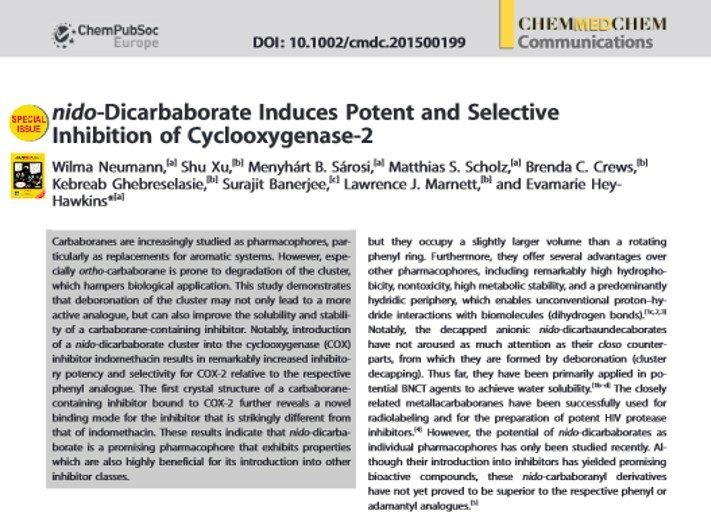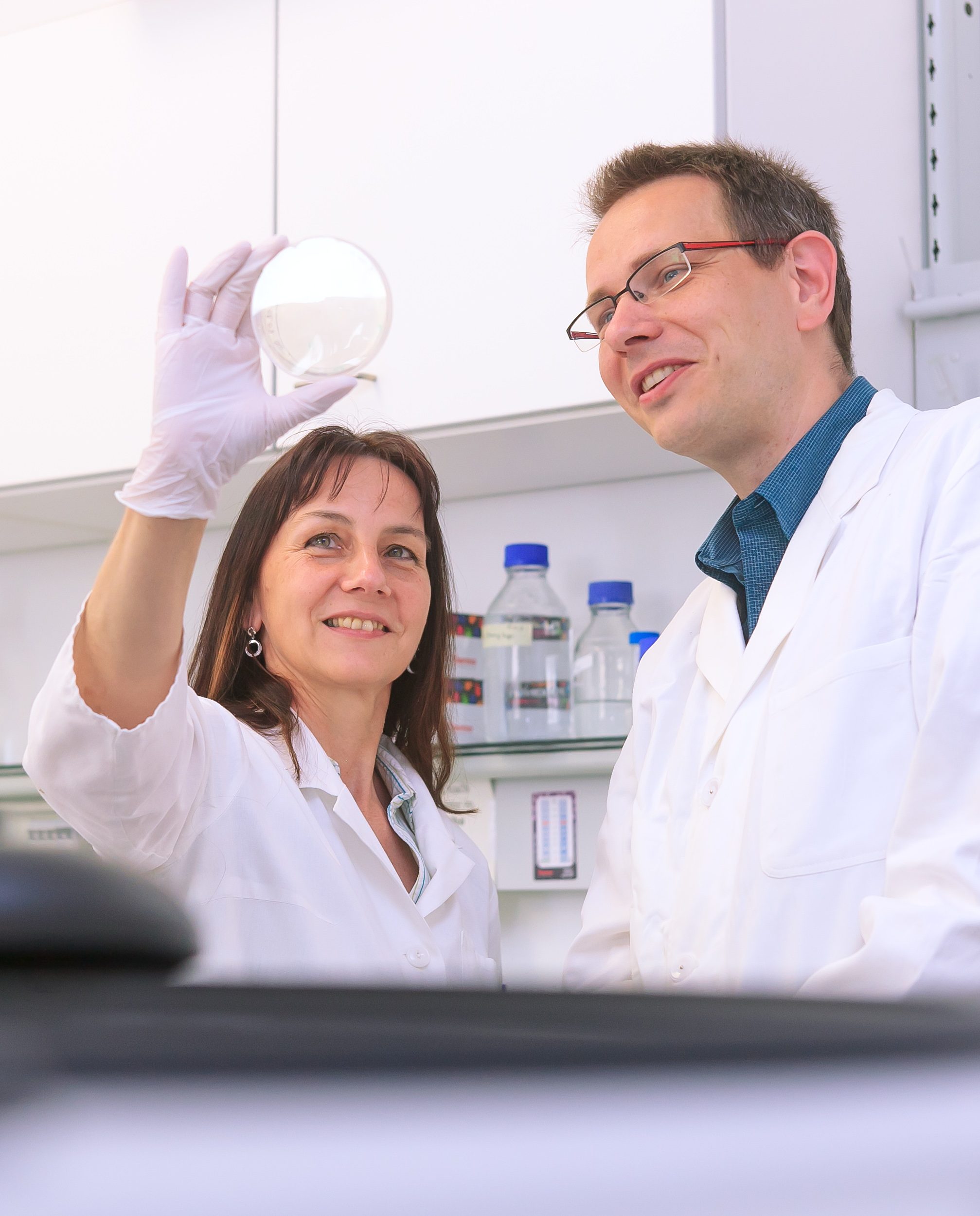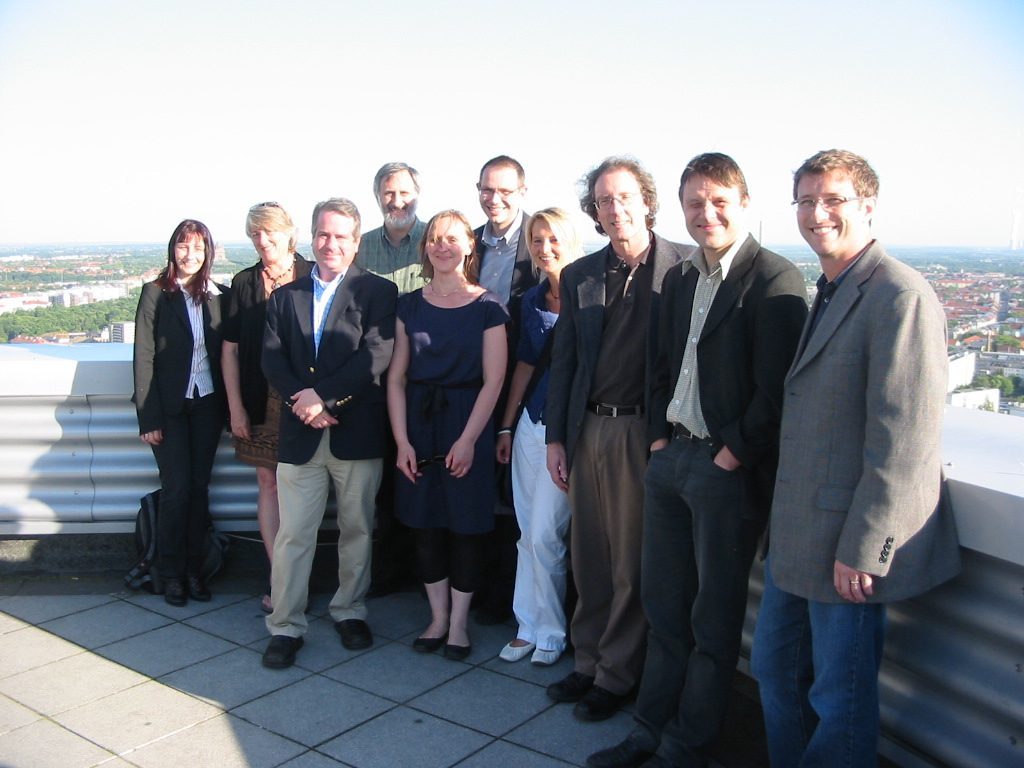Earlier this year, I had the incredible opportunity to experience the Nashville side of the Meiler Lab at Vanderbilt University with the help of a fellowship from the Max Kade Foundation. From May through March, I extended my master’s project on electron density in computer-aided drug design at this prestigious institution. The unique charm of the city, coupled with the stimulating environment at Vandy, truly enriched my experience. My master’s project centered on the importance of electron density in understanding how small molecules interact with target proteins. Existing computer-aided drug design tools typically use atom positions as a proxy for electron density, which limits their ability to accurately describe directional interactions.
This spring, I had the incredible opportunity to live and work in Nashville for a few months, thanks to the Max-Kade Foundation. Nashville truly embodies its spirit as “Music City” with its vibrant country culture and southern charm. Beyond the exceptional honky-tonks, Nashville is also known for its cutting-edge biomedical education and research at Vanderbilt University (VU) and the adjacent Vanderbilt University Medical Center (VUMC). My research focuses on targeted therapeutics to treat diseases more precisely and effectively. Using specific peptide ligands, these drugs target disease-relevant cells while leaving healthy cells unaffected. Coming from a background in biochemistry, it was enlightening to collaborate with Prof. Ray Harris’s lab at VUMC, allowing
I knew my first trip to the US would be memorable, but I never imagined it would be this amazing. From the bustling streets of downtown Nashville to the serene lakeside at Hamilton Creek, the city is a sight to behold. Even more impressive was the cutting-edge research at Vanderbilt University (VU). As a junior scientist, it was thrilling to work with experts across various fields and deepen my understanding of pharmacodynamics in molecular biology. My PhD research focuses on the regulation of the NLRP3 inflammasome by PAR4. To address this, I aimed to learn techniques for proximal G protein signaling at the Hamm Lab at VU. Under the guidance of
The Max Kade Foundation (MKF, www.maxkadefoundation.org) supports an international research exchange between Vanderbilt and Leipzig Universities. Specifically, MKF provides funds of three‐four undergraduate students from each university to conduct a 10 week summer internship at the respective partner university. Travel costs and a weekly stipend are provided. They target rising junior and rising senior students at Vanderbilt University. To select the recipients of the stipend, we collect research project descriptions from around twenty core laboratories that support the collaboration between Vanderbilt and Leipzig Universities. Descriptions are provided by the graduate student or post‐doctoral mentor who will advise the undergraduate student. It is encouraged that the undergraduate student conducts research on the
It was the first time for me in the US and I had a lot of scientific and cultural experiences. Nashville is a vibrant city and definitely earns its name as “Music City”. Bars, live music, sports events… it does not get boring. Besides that, Nashville is a growing place for cutting-edge biomedical research. Vanderbilt University (VU) hosts many groups working in this field and is nation-wide known for its research. For me as a young scientist, it was an invaluable experience to get insight into this institution. The aim of my Ph.D. project is the discovery of small molecule inhibitors against the Ovarian Tumor (OTU) Protease of the Crimean-Congo Hemorrhagic
This summer, I had the incredible opportunity to travel to Nashville as part of my PhD project, collaborating with local scientists. Additionally, my internship coincided with attending the RosettaCon conference in Seattle, renowned for being one of the finest computational structural biology conferences. It boasted a multitude of captivating talks and provided a valuable chance to connect with fellow researchers. This trip also allowed me to participate in Meiler’s Lab retreat held in the breathtaking Great Smoky Mountains. My PhD research focuses on peptides, specifically designing therapeutic candidates using non-canonical amino acids. In Nashville, my primary goal was to explore the capabilities of existing software for designing peptides based on non-canonical
During my stay in Leipzig, I worked under Felipe Engleberger to explore the potential for Large Language Models (LLMs) to answer scientific questions. Knowing that LLMs have created such an impact on everyday life through technologies such as ChatGPT, I was excited to contribute towards expanding their function to fulfill scientific tasks, yet like all research questions, executing is much easier said than done. To begin this endeavor, we focused on a specific task–exploring if we could empower a chat agent to find mutations to optimize the thermal stability of a protein, a common question in protein design. I was pretty new to the field of artificial intelligence; thus, I started
BackgroundA previous postdoctoral research, in the Meiler Lab with 8 years of experience researching cholesterol interactions with membrane proteins. Research SummaryCholesterol is one of the most studied lipids as it relates to protein-lipid interactions. Cholesterol plays multiple biological roles in bile acid synthesis, steroidogenesis, and membrane dynamic function. Increasingly, evidence has shown that cholesterol also acts as a direct binder to IMPs, including G-protein coupled receptors (GPCRs). GPCRs are a protein superfamily containing seven transmembrane helices that are responsible for a wide variety of signaling responses. The seven helices form a hydrophobic pocket accessible from the extracellular side, forming the orthosteric pocket for endogenous ligands to bind to. The binding of
Dear colleagues, we want to bring your attention to an announcement the chancellor and provost made earlier this week: Vanderbilt has launched a new Global Scholars in Residence program, which provides funding to faculty who wish to bring accomplished international scholars to campus to contribute to our intellectual community. I encourage you to take advantage of this opportunity. We are, fortunately, in a position now where travel restrictions have lifted and we can once again collaborate with colleagues abroad. The exchange of ideas across borders, disciplines, perspectives, and cultures is valuable to faculty and students alike, expanding our understanding and strengthening our research and discovery. Details about how to apply are
Early in 2020 I started my Master Thesis by developing an evolutionary algorithm to optimize small molecules binding to protein targets of pharmaceutical interest. It was planned to start the project at Vanderbilt University in close cooperation with Rocco Moretti, the leading developer of small molecule code in the Rosetta Software suite. He is Assistant Professor in Jens Meilers group at VU. Unfortunately, the Covid pandemic struck, and the trip was canceled. This year, however, I got awarded another opportunity to travel to Vanderbilt for 8 weeks, now a PhD student and the initial project close to being published. Working closely together with Rocco Moretti and other Meiler lab scientist I
My time in the US was full of new experiences both scientifically and culturally. It already started off with a bang when beginning of August I was able to join the Summer RosettaCon near Seattle. My first in-person contact with the Rosetta Commons did not only bring exciting new perspectives on protein design and structure prediction from the top researchers of the field, but also invaluable first hand input on my projects during the poster sessions. Fast forward and halfway through this vast country I started my own research in Nashville. With Vanderbilt University hosting an excellent biomolecular NMR (nuclear magnetic resonance) facility, I planned to express and purify a Marburg
This summer I had the opportunity to travel to Nashville on a Max-Kade Fellowship to participate in a joined research project between Vanderbilt University, the Vanderbilt Medical Center and Leipzig University. I was fortunate that my stay corresponded with the Summer RosettaCon 22 in the sleeping lady resort in Washington state. This gave me the opportunity to meet other structural biology enthusiasts in my first in person conference since the Covid pandemic and explore Seattle and the surrounding area. Luckily also the Meilerlab retreat gave me the opportunity to go to Florida and get to know my fellow lab members at Vanderbilt. At Vanderbilt I tried to learn as much about
The Max Kade Foundation (MKF, www.maxkadefoundation.org) supports an international research exchange between Vanderbilt and Leipzig Universities. Specifically, MKF provides funds of three‐four undergraduate students from each university to conduct a 10 week summer internship at the respective partner university. Travel costs and a weekly stipend are provided. They target rising junior and rising senior students at Vanderbilt University. To select the recipients of the stipend, we collect research project descriptions from around twenty core laboratories that support the collaboration between Vanderbilt and Leipzig Universities. Descriptions are provided by the graduate student or post‐doctoral mentor who will advise the undergraduate student. It is encouraged that the undergraduate student conducts research on the
I took part in the Max Kade Foundation exchange program as a part of my 6 months long diploma, an additional and optional degree when studying pharmacy. Prior to my diploma and my stay in Nashville, research experiences were barely existent, as the study program of pharmacy does not notably focus on that. However, before deciding to pursue a diploma in this field, I made two internships of two weeks each that gave me a rudimentary insight into the wet lab and computational work. Also, first contact with the research field of adhesion coupled G protein receptors (AGPCRs) occured during that time because one of my projects covered the determination of
My PhD research at Leipzig University focus on the Growth Hormone Secretagogue Receptor (GHSR), a receptor in our cell membranes involved in food intake and part of the G-protein coupled receptors (GPCRs) family, key targets of pharmacological drugs. More specifically, I am investigating the conformational changes of this receptor in the presence of its ligand ghrelin or other extra and intracellular partners, using solid state NMR. After having to cancel my exchange for the summer 2020 due to the coronavirus pandemic, I finally had the awesome opportunity to work in the lab of Prof. Dr. Vsevolod V. Gurevich from February to April 2022. The main goal of this exchange was to
As the chemical space is incredibly large with up to estimated 1060 molecules defined as small-molecule ligand, sophisticated and benchmarked methods and pipelines for screening this huge space in a fast and reliable manner are needed. In recent year, virtual ultra-large library screening has witnessed a rapid development with increasing computational power, but also growing available commercial make-on-demand libraries, like the REadily AccessibLe (REAL) libraryof Enamine Ltd. with currently 21 billion chemicals. Pipelines for screening huge databases are available but rely heavily on screening all the compounds. In the Institute for Drug Discovery in Leipzig an in-silico ultra-large library screening pipeline using flexible models of GPCRs was developed, tested, and established.
The Max Kade Foundation (MKF, www.maxkadefoundation.org) supports an international research exchange between Vanderbilt and Leipzig Universities. Specifically, MKF provides funds of three‐four undergraduate students from each university to conduct a 10 week summer internship at the respective partner university. Travel costs and a weekly stipend are provided. They target rising junior and rising senior students at Vanderbilt University. To select the recipients of the stipend, we collect research project descriptions from around twenty core laboratories that support the collaboration between Vanderbilt and Leipzig Universities. Descriptions are provided by the graduate student or post‐doctoral mentor who will advise the undergraduate student. It is encouraged that the undergraduate student conducts research on the
In the recent years, we pursued the goal to map the binding site of the ligand NPY at human neuropeptide Y5 receptor (Y5R). Therefore, we applied an approach called genetic code expansion to incorporate a photoreactive amino acid at a desired site at the extracellular part of the receptor. The obtained photocrosslinking-data revealed the proximity of several receptor positions to NPY in the ligand-receptor complex. Hence, giving us deeper insights into the receptor-binding pocket. For the visualization of my experimental data in a comparative model, I got the opportunity to perform the computational modeling in the laboratories of Jens Meiler at the Vanderbilt University in Nashville, Tennessee. In the course of
As a Master candidate of the Biochemistry program at Leipzig University I focus on analytics and structural biology. My studies mainly concentrated on performing experiments in the wet lab and I had only little knowledge of Rosetta and scientific programming. During my stay I worked on the computational modelling of G protein-coupled receptors (GPCRs) using the Rosetta homology modelling protocol. GPCRs are membrane proteins, which are crucial for translating extracellular signals into an intracellular response. It has been shown that these proteins are prone to misfolding during insertion into the membrane. During my research I tried to model a proposed misfolded state of the light-sensitive GPCR Rhodopsin[1] and managed to
The Max Kade Foundation (MKF, www.maxkadefoundation.org) supports an international research exchange between Vanderbilt and Leipzig Universities. Specifically, MKF provides funds of three‐four undergraduate students from each university to conduct a 10 week summer internship at the respective partner university. Travel costs and a weekly stipend are provided. They target rising junior and rising senior students at Vanderbilt University. To select the recipients of the stipend, we collect research project descriptions from around twenty core laboratories that support the collaboration between Vanderbilt and Leipzig Universities. Descriptions are provided by the graduate student or post‐doctoral mentor who will advise the undergraduate student. It is encouraged that the undergraduate student conducts research on the
Johanna K. S. Tiemann1, Prof. Dr. Vsevolod Gurevich2, Dr. Sandra Berndt2 1. Leipzig University 2. Vanderbilt University The aim of my exchange was to deepen the collaboration between the laboratory of Prof. Peter Hildebrand and Prof. Tina Iverson and Prof. Seva Gurevich and to push the project on the investigation of arrestin interactions with SRC family kinases forward. Arrestin is a key intracellular downstream signaling molecule, mediating G protein-coupled receptors and other proteins such as kinases. Those proteins are involved in tumor progression and metastasis, their study, therefore, of noticeable interest. Especially the interaction of arrestin with kinases, in particular, SRC family kinases is so far barely understood. Through the established
Enhancing pathogenicity prediction from structure and evolution with machine learning Currently I am enrolled in a Computer Science Master program at the University of Leipzig. Since my program offers no practical experience in scientific research I was excited when I got offered to participate in the Max Kade Foundation Fellowship. During my ten weeks stay I started a completely new project with the goal to develop a pathogenicity prediction score on point variants in human genes incorporating structural and evolutionary features. Obviously, the scope of this project was way to big to be fulfilled during ten weeks only, so I aimed to collect some data, calculate features and train a machine
I am a PhD student in Leipzig in the lab of Annette Beck-Sickinger. My research focuses on investigation of ligand-binding at a speci c G protein-coupled receptor, the chemokine-like receptor 1. This receptor is involved in multiple in ammatory diseases and therefore is a promising drug target. While we have the possibility to investigate the pharmacology of this receptor here in Leipzig, the lab of Jens Meiler at Vanderbilt offers computational methods to improve understanding of this receptor on a molecularlevel. Hence, I spent 10 weeks in Vanderbilt, where I had the possibility to learn using the software suite Rosetta, which includes a variety of algorithms for protein structure prediction and is
Adhesion G protein-coupled receptors (aGPCRs) are expressed in various cell types, including cells of the immune system and central nervous system. Furthermore, they were reported to be involved in tumorgenesis. Besides their physiological relevance the majority of them have not been functionally characterized in detail. Notably, in contrast to other GPCRs this class of receptors possess an autoproteolytical site within their N-terminus at which they are cleaved. It is known that aGPCRs can be activated by their Stachel-sequence, a short tethered agonist sequence N-terminal of this cleavage site. However, both the binding pocket and the mechanism of its activation remain to be characterized. Using the smallest and noncleaved GPR114 as a
(30/04/2018 by Anett Albrecht): A joint publication of Leipzig and Vanderbilt scientists was published in April 2018 in the prestigious journal “Nature”. The article continues the series of numerous publications that have emerged already from the long-term collaboration between the Leipzig and Vanderbilt University. Abstract: Neuropeptide Y (NPY) receptors belong to the G-protein-coupled receptor superfamily and have important roles in food intake, anxiety and cancer biology 1,2 . The NPY-Y receptor system has emerged as one of the most complex networks with three peptide ligands (NPY, peptide YY and pancreatic polypeptide) binding to four receptors in most mammals, namely the Y1, Y2, Y4 and Y5 receptors, with different affinity and selectivity 3
[press release written by Susann Huster/Anett Albrecht, April 10, 2018] The cooperation between the University of Leipzig and Vanderbilt in Nashville (USA) has been contractually sealed for another ten years. A few days ago, the rectors of both universities signed a Memorandum of Understanding. The American Max Kade Foundation had previously approved an application for funding from project leaders Prof. Dr. Annette Beck-Sickinger from the Institute of Biochemistry at the Leipzig University and Prof. Dr. Jens Meiler from Vanderbilt University: The foundation will also support the exchange with 50,000 dollars (40,000 euros) per year between 2017 and 2021. “We hope that the already established excellent relations with Vanderbilt University will continue
(07/04/2016 by Anett Albrecht): A joint publication of Leipzig and Vanderbilt scientists was published in June 2016 in the prestigious journal “PLoS One”. The article continues the series of numerous publications that have emerged already from the long-term collaboration between the Leipzig and Vanderbilt University. Abstract: The human neuropeptide Y4 receptor (Y4R) and its native ligand, pancreatic polypeptide, are critically involved in the regulation of human metabolism by signaling satiety and regulating food intake, as well as increasing energy expenditure. Thus, this receptor represents a putative target for treatment of obesity. With respect to new approaches to treat complex metabolic disorders, especially in multi-receptor systems, small molecule allosteric modulators have been
The joint publication of Hu, Stern, Gimenez, Wanka, Zhu, Rossi, Meister, Inoue, Beck-Sickinger, Gurevich and Wess was named as “Paper of the Week” by the Journal of Biological Chemistry’s editorial board, landing it in the top 2 percent of all papers published over the year in the journal. The joint publication focussed on designer receptors exclusively activated by a designer drug – short DREADDs. This are CNO sensitive designer G protein-coupled receptors which are able to activate heterotrimeric G proteins and also trigger arrestin-dependent signaling. In the present study the development of a mutationally modified version of a non-biased DREADD derived from the M3 muscarinic receptor that can activate Gq/11 with
(Leipzig/Nashville, 02/03/2016): Scientists at Leipzig University and Vanderbilt University (USA) reduced the side effects of Indomethacin by altering the so-called boron cluster molecule of this drug. This molecule have a spherical shape – composed of boron, hydrogen and carbon atoms. The active ingredient causes an inhibition of the enzyme cyclooxygenase, which plays an important role in production of inflammations and pain. But Indomethacin also leads to severe side effects. The scientists changed the drug, so that it blocks only the pathological form of the enzyme. The other form, which controls important physiological processes in the body, would barely be affected. The results underline the potential of boron clusters in pharmacytical application
(by David Salisbury, Vanderbilt University): Associate Professor of Chemistry Jens Meiler has received a Friedrich Wilhelm Bessel Research Award from the Alexander von Humboldt Foundation in Bonn, Germany. The award is given to scholars based on their “outstanding research accomplishments and exceptional promise for the future.” Individuals are nominated by German scholars and must have received their Ph.D. in the last 18 years. In addition to a monetary prize, award winners are invited to spend a period of up to one year collaborating on a long-term research project. Meiler, who has an international reputation in the field of structural biology, will be collaborating with colleagues at Leipzig University on studies of
by Thomas Ebert (postdoc at Leipzig University): From January 3rd, 2014 – April 4th 2014, I had the opportunity to stay at the Division of Nephrology and Hypertension at the Vanderbilt University Medical Center (VUMC) in Nashville, Tennessee as a visiting scholar. In our group in Leipzig (headed by Prof. Mathias Fasshauer), we focus on adipocyte-secreted proteins, so called adipokines, in renal dysfunction. To investigate adipokines in diabetic nephropathy (DN), a severe consequence of long-term diabetes mellitus, animal studies are vitally important. The group of Prof. Raymond C. Harris (Chief of the Division of Nephrology and Hypertension at VUMC) introduced the enos db/db-mouse as the currently best mouse model to study
by Stephan Theisgen (Post Doc at Leipzig University): From 16th September to 14th October I had the opportunity to visit Prof. Jens Meiler’s Lab where I wanted to perform some structural computations to complete a pending scientific paper. This turned out to be a major task for 4 weeks only. But together with Dr. David Nanneman, Stephanie Hirst DeLuca and Sam DeLuca, we managed to finish this ambitious project successfully. In the process, I learned a lot about computational structural biology and became familiar with an important method in this field. Beside the heavy scientific work, I enjoyed very much the special southern cuisine, visiting downtown Nashville and of course some
Annette Beck-Sickinger and Torsten Schoeneberg from Leipzig University and Jens Meiler from Vanderbilt University receive a grant “Ensemble Docking Interrogates Structural Determinants of Ligand-Protein Interactions” that is jointly funded by the National Science Foundation (NSF) and the Deutsche Forschungsgemeinschaft (DFG). The grant will develop a novel docking algorithm that leverages Structure-Activity-Relations (SAR) and apply this algorithm to understand regulation of G-Protein Coupled Receptors (GPCRs). Project Summary
Researchers of Leipzig and Vanderbilt Universities published a paper in the journal “Bioorganic & Medicinal Chemistry” showing the results of their collaborative project on carbaborane research. The paper, published in March 2011, describes new synthesis strategies of indomethacin derivatives with inorganic carbaborane clusters. Indomethacin is a very potent cyclooxygenase (COX)-1 and COX-2 inhibitor with clinical significance as anti-inflammatory drug , The carbaborane-modified drug candidates showed also COX inhibition activity, depending on the carbaborane isomer and the connection pattern. The results gave general insights into the applicability of carbaboranes as drug entities. Synthesis and evaluation of carbaborane derivatives of indomethacin as cyclooxygenase inhibitors Matthias Scholz(1), Anna L. Blobaum(2), Lawrence J. Marnett(2) and
The 3rd Cooperation Workshop of Leipzig and Vanderbilt Universities took place in Leipzig on May 25th until 29th, 2011. It was organized by the Top-Level Research Area 3 “Molecular and Cellular Communication” (PbF3) Six faculty from Vanderbilt University visited Leipzig, participated in a scientific symposium, and used the opportunity to get in touch close contact with researchers from Leipzig University and non-university institutions. The guests were heartily welcomed by new university rector, Prof. Dr. Beate A. Schücking on Wednesday evening at the top of Leipzig’s old university building, now the Panorama Tower in the city center. On Thursday, a public scientific symposium took place at the seminar building, eagerly visited by
First results of the successful collaboration between Leipzig University (Germany) and Vanderbilt University, Nashville (Tennessee, USA) have been published in the Journal of Biological Chemistry by end of 2010. Researchers from the labs of Annette G. Beck-Sickinger (Leipzig University) and Vsevolod V. Gurevich (Vanderbilt University) investigated the mechanism and regulation of neuropeptide Y2 receptor internalization. For the first time, the corporate publication “Ligand-induced internalization and recycling of the human neuropeptide Y2 receptor is regulated by its carboxyl-terminal tail” reports on specific sequences located in the receptor’s C-terminus which determine arrestin-dependent/independent internalization and recycling events, thus contributes to a better understanding of the regulation of G protein-coupled receptor trafficking pathways. Cornelia Walther,
During November 10th – 14th, researchers from Leipzig University in Germany will visit Vanderbilt to deepen and expand a collaboration between the two Universities. Faculty from Leipzig University will present their research in a kick-off symposium on November 10, 1:30pm in 208 Light Hall. A wine and cheese reception will follow the presentations at 5:30pm, where the faculty will be present to discuss their research. This collaboration is supported by Vanderbilt’s International Office, the Institute for Chemical Biology, the Department of Chemistry, and the School of Arts & Sciences. This collaboration is also supported by the German Research Foundation (DFG) and the PbF3 of Leipzig University. On November 10th, 2010 in
The Kick-off meeting of the establishment of a university partnership between Vanderbilt and Leipzig University took place in Leipzig from June 16th to 20th. During this first joint scientific workshop seven researchers from Vanderbilt University presented their research an audience of Leipzig faculty and students. Topics of the workshop were parts of research of both universities in the natural and life sciences (organic chemistry, biochemistry, biotechnology, bioinformatics, and biomedicine). Besides the workshop we organized multiple face-to-face meetings with work groups from Leipzig University and introduced the visitors to Leipzig and its research institutions. Until now exists several cooperations of researchers from both universities, for instance in the areas of G-protein coupled



